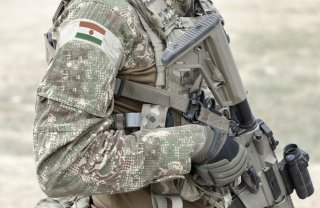Washington Must React Realistically to the Coup in Niger
Irrespective of the immediate outcome of the current crisis, the United States and its allies will need to be clear-eyed in regards to the stakes of the situation and its limited options available.
Fourth, understand the options available are limited and be pragmatic in making choices amongst them. With French forces kicked out of Mali and Burkina Faso after the coups in those countries and the United Nations peacekeeping mission in the former about to be drawn down, there is no sugar-coating the strategic setback that the possible loss of the U.S. and French bases in Niger—which not only support the counterterrorism fight against the regional affiliates of Al Qaeda and Islamic State but also surveilled the ongoing civil conflict in Libya—would represent in the short and intermediate terms. Yet, assuming that the putsch is not reversed, if the U.S. administration is to conform to the law as well as remain true to American values, it will have little choice but to declare what occurred in Niger a coup, with all the consequences that such would entail in terms of security cooperation with the country’s new rulers. In this case, given that ECOWAS has categorically rejected “any form of resignation that may purportedly come from His Excellency President Mohamed Bazoum,” it would be difficult to avoid the legal determination that a coup has taken place. As a result, so-called Section 7008 restrictions would be triggered, blocking foreign assistance delivered to the regime and military training and equipment from the Defense Department. The problem is that this is precisely the type of sanction that creates openings for the West’s geopolitical rivals.
In Niger, it is not only Russia—whose entrée into Mali, it is worth recalling, was the denial by the Biden administration of an export license for a non-lethal military part, a refusal that was not required by law—waiting at the wings, at least according to Prigozhin, but also probably China, whose state-owned oil company CNPC has nearly completed a 2,000-km oil pipeline running from eastern Niger to the Port of Seme terminal on the Atlantic in Benin that will be Africa’s largest. Is it any surprise that, having “taken note” of the African Union and ECOWAS condemnations of the coup, Chinese Foreign Ministry spokesperson Mao Ning limited herself to an anemic call for “relevant parties in Niger” to “solve their differences peacefully through dialogue?”
In practical terms, the coup in Niger leaves Chad as the only country left now in the central Sahel to which the United States can turn as a possible security partner, although doing so requires Washington to be cognizant of the unique challenges there. It was no accident that the ECOWAS Summit dispatched Chad’s Transitional President Mahamat Idriss Déby to Niamey to deliver its decisions to the junta and to seek to check in on President Bazoum. For their part, U.S. policymakers will need to become more creative over time, seeking opportunities to reopen channels to and maybe even flip the allegiances of some regimes currently aligned with Wagner, including the Central African Republic, Mali, and Burkina Faso.
In the end, whether the coup in Niger succeeds or is reversed somehow, the dynamic has certainly shifted. Irrespective of the immediate outcome of the current crisis in Niamey, to safely navigate the strategic challenges ahead in the Sahel, the United States and its allies will need to be clear-eyed about both the stakes and the even more limited options they now have remaining in that fragile African region.
Ambassador J. Peter Pham, a Distinguished Fellow at the Atlantic Council and a Senior Advisor at the Krach Institute for Tech Diplomacy, is former U.S. Special Envoy for the Sahel and Great Lakes Regions of Africa.
Image: Shutterstock.

